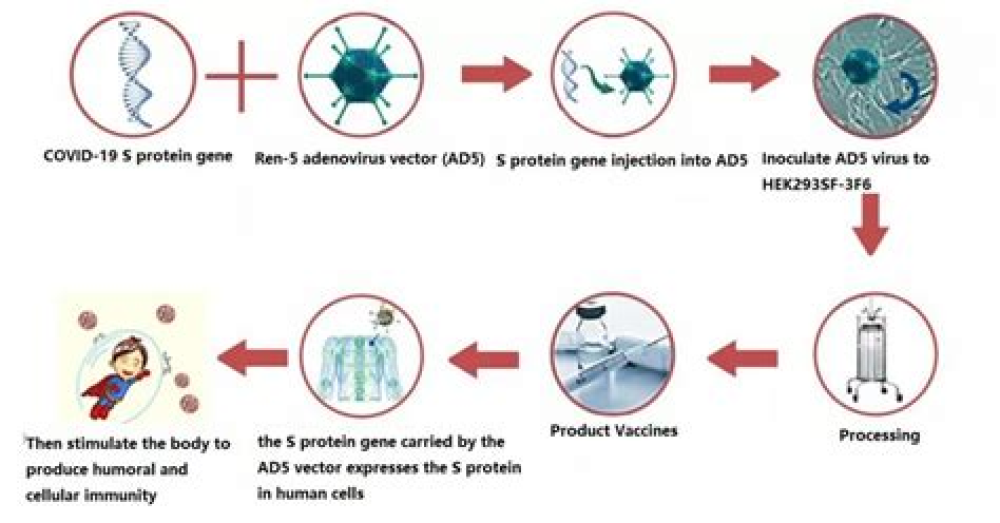— It’s pretty simple — they can’t
Authors: by Veronica Hackethal, MD, MSc, Enterprise & Investigative Writer, MedPage Today March 12, 2021
Adenoviral vector vaccines have been in development for decades, but very few have been approved for use in humans. What does the history of adenoviral vector vaccine development tell us about their safety and their potential to alter DNA?
How Do Adenoviral Vector Vaccines Work?
Essentially, these types of vaccines act like delivery shuttles. They use an adenovirus — which has been engineered to be incapable of replicating and causing disease — to deliver the genes for making the antigen; in this case, that’s the SARS-CoV-2 spike protein. That in turn elicits an immune response and provides protection against the coronavirus.
Adenoviruses are basically common cold viruses that can cause illnesses ranging from cold-like symptoms to bronchitis, gastroenteritis, and conjunctivitis.
“I think people are unfortunately familiar with adenoviruses … [A]t far too many points, you know, you’ve had the sniffle. You’ve had the cough. You felt crummy. If it’s a cold it’s often adenovirus,” Daniel Griffin, MD, PhD, said on a recent episode of MedPage Today‘s “Track the Vax” podcast. Griffin is chief of infectious disease at ProHEALTH Care, an Optum unit.
Humans are infected with multiple different types of adenoviruses throughout their lifetimes. Most serotypes cause mild illness, although adenovirus serotype 7 has been associated with more severe illness. Older adults and people who are immunocompromised or have pre-existing respiratory or cardiac disease may have worse illness.
Precisely because adenoviruses are so common, one problem with using them in vaccines is that people may already have antibodies to them, overwhelming them before they can do their assigned work. Researchers get around that issue by using adenoviruses that humans are unlikely to have encountered before.
Currently, five adenovirus vector vaccines for COVID-19 are in use worldwide.
Each works on the same basic principle, although delivery platforms differ. The AstraZeneca/Oxford vaccine uses the ChAdOx1 platform, which is based on a modified version of a chimpanzee adenovirus.
The Johnson & Johnson vaccine uses a proprietary AdVac platform, made up of a recombinant human adenovirus (adv26). It’s the same platform used in the company’s Ebola virus vaccine (which is approved in Europe) and its investigational Zika, RSV, and HIV vaccines.
Russia’s Sputnik V uses recombinant human adenoviruses Ad26 and Ad5 for the first and second doses, respectively. Finally, China’s CanSino vaccine uses the recombinant human adenovirus Ad5.
For More Information: https://www.medpagetoday.com/special-reports/exclusives/91604
